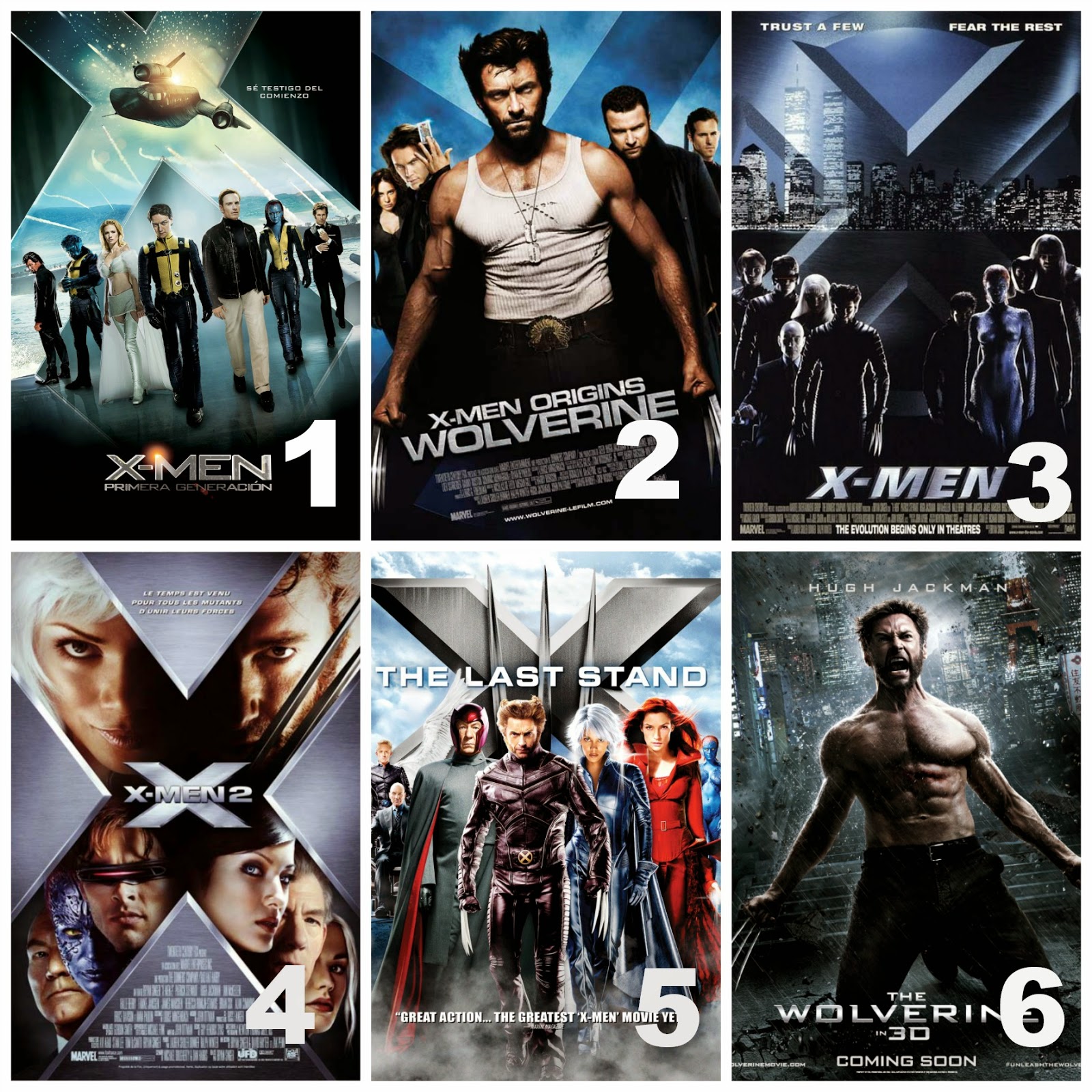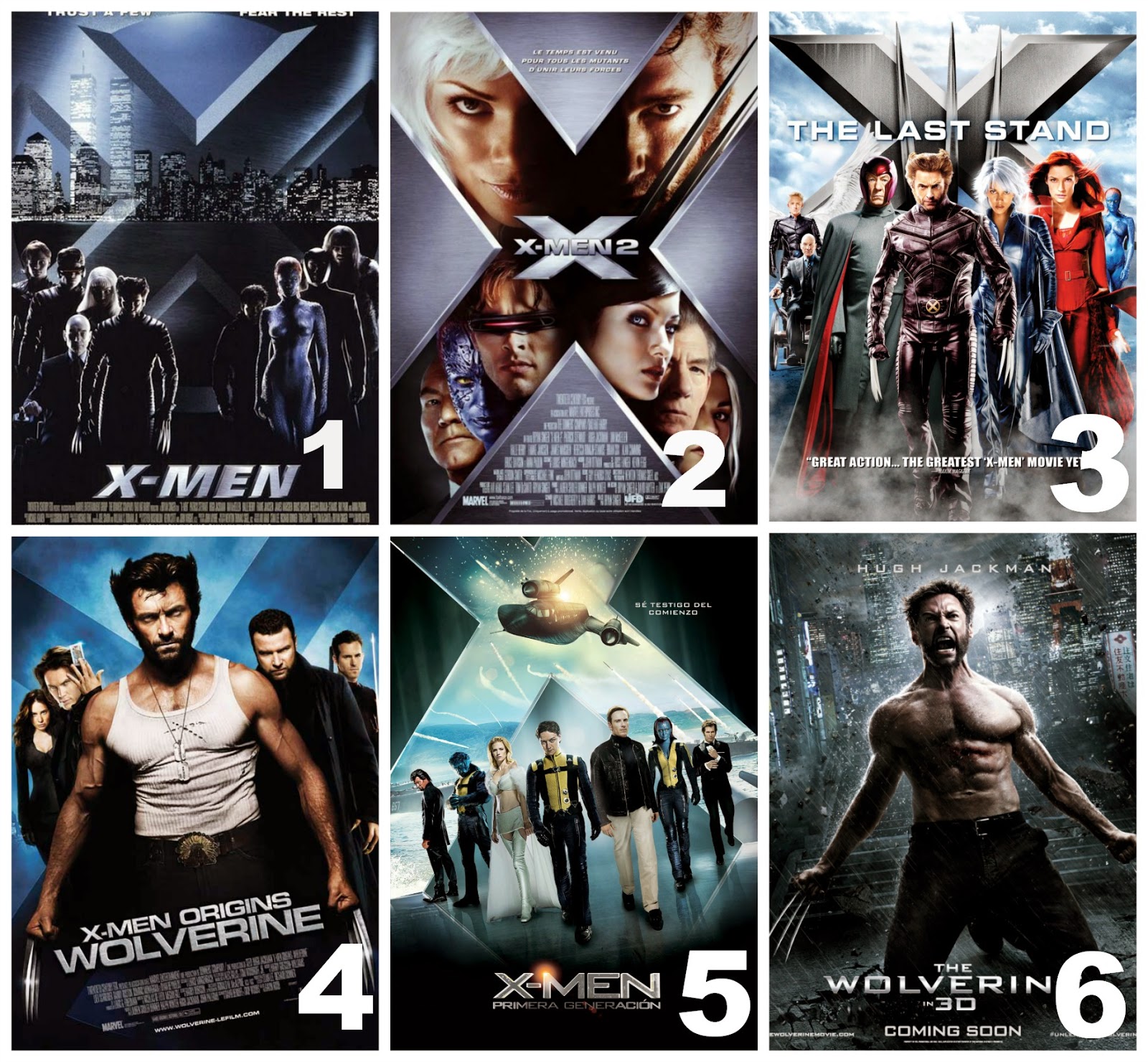X Men In Order: The Complete Guide To The X-Men Movie Franchise
The X-Men franchise has captivated audiences worldwide with its thrilling storylines and complex characters. From its inception in the early 2000s to the latest releases, the X-Men movies have become a cornerstone of the superhero genre. This article will provide a comprehensive guide to the X-Men movies in order, exploring each film's plot, characters, and significance within the broader cinematic universe.
In this guide, we will delve into the chronological order of the X-Men films, including spin-offs and prequels, to help fans understand the timeline of events. Additionally, we will discuss the evolution of the characters, the thematic elements present in the series, and the impact of the X-Men on pop culture. Whether you are a long-time fan or a newcomer to the franchise, this article will serve as a valuable resource.
Furthermore, we aim to provide readers with insights into the making of these films, behind-the-scenes stories, and the critical reception of each installment. By the end of this article, you will have a thorough understanding of the X-Men movies and their place in the superhero genre.
Table of Contents
- 1. Introduction to the X-Men Franchise
- 2. The X-Men Movies in Chronological Order
- 3. Detailed Breakdown of Each Film
- 4. Character Evolution Throughout the Series
- 5. Themes and Messages in the X-Men Films
- 6. Impact on Pop Culture and the Superhero Genre
- 7. Behind-the-Scenes Insights
- 8. Conclusion and Final Thoughts
1. Introduction to the X-Men Franchise
The X-Men franchise began with the release of the first film, "X-Men," in 2000. Directed by Bryan Singer, this film introduced audiences to a world where mutants—individuals with extraordinary abilities—struggled for acceptance in a society that feared and hated them. The success of the film paved the way for a series of sequels and spin-offs, expanding the universe and exploring different characters and story arcs.
One of the key elements that set the X-Men apart from other superhero franchises is its focus on social issues, such as discrimination, identity, and the struggle for equality. These themes resonate with audiences, making the X-Men not just a story about superheroes, but also a reflection of real-world challenges.
As we explore the X-Men movies in order, we will see how these themes are woven throughout the series and how the characters evolve over time, facing both internal and external conflicts.
2. The X-Men Movies in Chronological Order
Understanding the X-Men movies in chronological order can be a bit complex due to the various timelines and alternate realities presented in the films. Below is a list of the X-Men movies arranged in chronological order according to their in-universe timelines:
- X-Men: First Class (2011)
- X-Men Origins: Wolverine (2009)
- X-Men (2000)
- X2: X-Men United (2003)
- X-Men: The Last Stand (2006)
- The Wolverine (2013)
- X-Men: Days of Future Past (2014)
- X-Men: Apocalypse (2016)
- Logan (2017)
- Dark Phoenix (2019)
- The New Mutants (2020)
3. Detailed Breakdown of Each Film
X-Men: First Class
Released in 2011, "X-Men: First Class" serves as a prequel to the original trilogy. Set during the Cuban Missile Crisis, the film explores the origins of the X-Men and the relationship between Charles Xavier (Professor X) and Erik Lensherr (Magneto). The film features a stellar cast, including James McAvoy and Michael Fassbender, and successfully rebooted the franchise with a fresh take on the beloved characters.
X-Men Origins: Wolverine
This 2009 film focuses on the backstory of Wolverine, played by Hugh Jackman. It delves into his early life, the formation of Team X, and his tumultuous relationship with Victor Creed (Sabretooth). While the film received mixed reviews, it provided valuable insight into Wolverine's character and set the stage for future appearances.
X-Men
The original 2000 "X-Men" film introduced audiences to the core team of mutants, including Wolverine, Storm, Jean Grey, Cyclops, and Professor X. The film's success established the template for modern superhero films, combining action, drama, and character development.
X2: X-Men United
In 2003, "X2: X-Men United" continued the story, showcasing the struggle between mutants and humans. The film is notable for its deeper exploration of themes such as acceptance and the consequences of prejudice. It further develops characters and introduces new ones, such as Nightcrawler.
X-Men: The Last Stand
The 2006 film, "X-Men: The Last Stand," deals with the controversial "cure" for mutation, leading to internal conflict within the X-Men team. This film marks a significant turning point in the series, as it explores the moral implications of curing mutants while also introducing the Dark Phoenix storyline.
The Wolverine
Released in 2013, "The Wolverine" follows Logan as he travels to Japan, where he confronts his past and battles new foes. This film is known for its character-driven narrative, allowing for deeper exploration of Wolverine's psyche.
X-Men: Days of Future Past
The 2014 film "X-Men: Days of Future Past" combines the original cast with the new generation introduced in "First Class." The plot involves time travel and alternate realities, showcasing the consequences of past actions and the importance of unity among mutants.
X-Men: Apocalypse
In 2016, "X-Men: Apocalypse" introduced the ancient mutant Apocalypse, who seeks to eliminate humanity. The film explores the formation of the X-Men and their battle against this powerful adversary, while also continuing the character arcs established in previous films.
Logan
In 2017, "Logan" marked a significant departure from the traditional superhero film formula. Set in a dystopian future, the film showcases an aging Wolverine caring for Professor X. Its emotional depth and darker tone received widespread acclaim, solidifying its place in cinematic history.
Dark Phoenix
Released in 2019, "Dark Phoenix" revisits the iconic storyline of Jean Grey's transformation into the Dark Phoenix. While the film faced criticism, it provided closure for several character arcs and explored the consequences of unchecked power.
The New Mutants
The 2020 film "The New Mutants" takes a different approach, focusing on a group of young mutants coming to terms with their powers in a mysterious facility. This film offers a unique blend of horror and superhero elements, expanding the X-Men universe in a new direction.
4. Character Evolution Throughout the Series
The X-Men franchise is renowned for its complex characters, each with their own struggles and development arcs. From Professor X's idealism to Magneto's extremist views, the characters embody different perspectives on the mutant experience. Key character evolutions include:
- Wolverine: From a lone wolf to a mentor, Wolverine's journey showcases his growth and acceptance of his role within the X-Men.
- Professor X: His transition from an optimistic leader to a more morally ambiguous figure highlights the complexities of leadership in a divided world.
- Magneto: His character arc represents the struggle between revenge and redemption, ultimately challenging the audience's perception of villainy.
5. Themes and Messages in the X-Men Films
The X-Men films are rich with themes that resonate deeply with audiences. Notable themes include:
- Acceptance: The struggle for acceptance in a society that fears the unknown is a central theme in the X-Men franchise.
- Identity: Characters grapple with their identities as mutants, reflecting real-world issues of self-acceptance and belonging.
- Prejudice: The series serves as an allegory for racial and social discrimination, encouraging empathy and understanding.
6. Impact on Pop Culture and the Superhero Genre
The X-Men franchise has significantly influenced the
Gwen Stefani Nude: A Journey Through Art, Fashion, And Empowerment
Exploring The Iconic Jaws Cast: A Deep Dive Into The Film's Legacy
Chiefs Final Score Tonight: A Comprehensive Overview Of The Game


